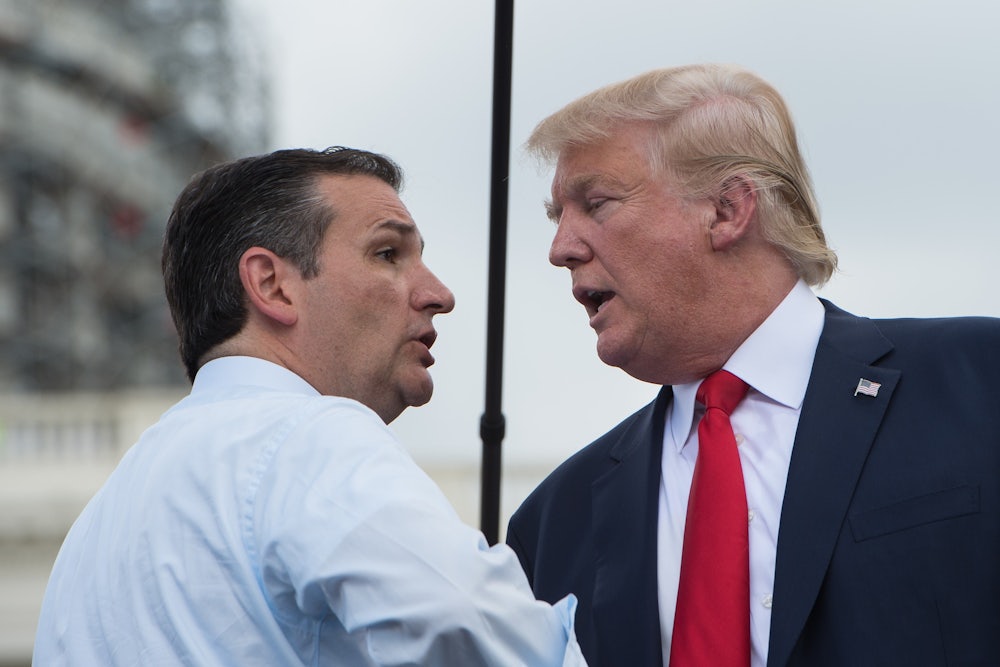At this point, Kasich and Rubio are only competing in three states: Kasich will try to make a big show in Ohio and Michigan, while Rubio pretty much has to win his home state of Florida to stay in the race. If there are positive outcomes in those states for either candidate, it’s possible (but unlikely) that the momentum will shift. But 21 of 22 Republican contests have now gone to either Ted Cruz or Donald Trump. Tonight Cruz and Trump will most likely split the field, with Cruz taking Kansas and Maine and Trump most likely winning Louisiana and Kentucky.
Cruz has cut into Trump’s lead in both Kentucky and Louisiana, and there are indications that a great deal of that support came to him very recently—Trump has a commanding lead in votes cast before election day, but Cruz won over many voters in the days leading up to the election. But Cruz’s Maine victory points to a shifting race. Maine does not have very many evangelical voters—normally Cruz’s bread and butter—but Cruz won the state with 45 percent of the vote, suggesting that he was able to build a larger coalition than once thought. Maine is a caucus state, and caucus states favor Cruz because very conservative voters have a greater influence, but this result suggests that Cruz may not be another Huckabee or Santorum.
Just as importantly, Cruz’s victory in Maine undercuts one of Trump’s biggest arguments: that he is driving people to the Republican Party. Turnout in Maine was three times higher in 2016 than it was in 2012, but Cruz won handily, suggesting that Trump is not the sole factor driving voter turnout.
Don’t get me wrong: Donald Trump is still the GOP frontrunner. But results in all four contests tonight suggest that Ted Cruz is gaining momentum.
